Mentioning Tran Hoan is talking about a politician, a dynamic cultural activist, an excellent musician of the second generation of artists, the generation that was born and grew up with the birth and development of the August Revolution in 1945, a musician who received the Ho Chi Minh Prize for Literature and Arts (in 2001).

Musician Tran Hoan (left) talks with Quang Tri Newspaper Editor-in-Chief Tran Trong Ton (1990) - Photo: PV
Tran Hoan's real name is Nguyen Tang Hich, born on December 27, 1928 in Cau Nhi village, Hai Tan commune (now Hai Phong commune), Hai Lang district, Quang Tri province. At the age of 13, he entered Lycée Khai Dinh (Hue National School). It was here, from the student movement to save the nation, that Tran Hoan's first songs were born, marking his name in the history of Vietnamese revolutionary music .
Rolling on the lands of the Fatherland, on the arduous and thorny marching paths, but the soul of the artist Tran Hoan is always deeply moved by the reality of life, from which appear "Son girl song", "Words of the departed", "Rung road", "Lullaby on the field", "Afternoon on Gio Cam liberated"...
Tran Hoan's music composing career spanned 60 years with thousands of songs. His songs are rich and diverse, from notes full of fighting spirit to youthful, vibrant songs. There is something very special, a very Tran Hoan feature when we encounter in his songs the folk music of his hometown Quang Tri.
After the resistance war against the French and then the peace period, Tran Hoan worked in many places, composed quite a lot, but only when the Party mobilized him to return to the battlefield B (in 1966), returned to his homeland, absorbed in the lullabies, river songs, the enchanting sounds of the mountains and forests of the Van Kieu and Pa Ko people... musician Tran Hoan created for himself a new performing style, rich in the folk music of the North Central region.

Singer Khanh Huyen performed the work of musician Tran Hoan in the Pham Tuyen - Tran Hoan music night in September 1996, in Dong Ha - Photo: D.T
During his years in the Tri Thien - Hue battlefield, Tran Hoan used the pen name Ho Thuan An. Responding to the Dong Ha audience in the "Tran Hoan Music Night" at the Provincial Cultural Center (March 1995), he said the word "Hoan" was split into two words "Ho - An", and because he worked in the Tri Thien - Hue battlefield, he added the word "Thuan" to make it seem like a place name.
Ho Thuan An is his pen name used to write songs that move people's hearts with sincere and profound emotions. The songs "Lullaby on the field" (poem by Nguyen Khoa Diem), "I love you in Hue fighting" (poem by Que Lam) and songs about his hometown Quang Tri such as: "Pick a branch of red flowers to give you" (1971), "Music on road 9" (1973), "Afternoon on Gio Cam Giai Phong" (1973), "Letter to you" (1974)... were written by Tran Hoan with a lyrical style, folk melody.
According to poet Huy Can, “the rhythm here is the rhythm of the heart, not fast, not rushed; not slow, but following the breath of the narrative. Therefore, that tone, that rhythm easily leads the melody to linger in people’s hearts.” In the song “Letter to You,” Tran Hoan wrote lyrics heavy with feelings, filled with a sky full of nostalgia for the homeland:
Who can count how many leaves are in the forest?
And on the river the waves beat far from the shore
Our love is like the clouds and the wind
The distance makes our hearts more beautiful
He said that from Ba Long he stood guard.
Still see the fields and sea in Hai Lang area
Though mountains and forests separate
Far apart but still feel close.
Through the song we see that "Tran Hoan's musical space is like a realm of lingering memories, a place to return to with fond memories, a space containing lingering time" (Huy Can).
In July 1989, Quang Tri province was re-established. Quang Tri compatriots in Hanoi and Ho Chi Minh City wrote letters to Tran Hoan, asking him to spare time to write a song for his home province on this important occasion. The editorial board of Quang Tri Newspaper also asked him to write a song to publish in the newspaper.
The musician accepted and when preparing to publish the third issue, musician Tran Hoan went to Quang Tri and brought to the Quang Tri Newspaper's editorial office a song recorded on July 10, 1989, the song "Quang Tri Love". At the same time, he gave Quang Tri Radio Station, the Department of Culture and Information, and the Quang Tri Song and Dance Troupe a cassette tape of this song performed by Meritorious Artist Ai Xuan.
This is considered the first song written about Quang Tri after the province was re-established and was warmly received by the public. Mr. Hoang Thi, singer of the Quang Tri Song and Dance Troupe, performed this song very successfully during his tours to serve the people in the province. He also performed the song with him in Laos to celebrate the 100th anniversary of President Ho Chi Minh's birthday.
Our homeland Quang Tri has Mai mountain and Han river, the brilliant jade color of the charming landscape. Quang Tri people are as gentle as potatoes and rice grains; the sky and clouds of Quang Tri are as deep blue as Te Hanh's poem "The sky is still the same blue color of Quang Tri". That image was sung by Tran Hoan deeply and proudly:
Quang Tri oh my motherland
Can never forget mother's lullaby
That if it is not fragrant, it can still be sandalwood.
Even if it is not clear, the water from our Korean source can flow out...
The war is over, the winds of peace have blown gently across the fields still covered with barbed wire, bullets and mines, still littered with the remains of tanks and fortifications, the whole of Quang Tri is devastated and in ruins. During the war, the people of Quang Tri fought the enemy steadfastly, endured hardships, but during the peacetime, they are just as industrious and hard-working.
The song “Quang Tri Yeu Thuong” by Tran Hoan has summarized the history, geography and future direction of Quang Tri with the “vast Highway 9 taking us to Laos” and friends in the region. Tran Hoan’s sentiments were expressed when he told everyone: “the Hien Luong waves are soaked with tears, each plowed furrow, each clump of trees, blood from all directions dyes this land red”, so each of us must have the responsibility to preserve and cherish it.
Tran Hoan has a deep affection for his hometown, so almost every time he returns to visit his hometown, he has a new song. These are compositions that he sometimes writes hastily on the bus from Hanoi to Quang Tri, or in the rare spare time of a minister who is busy with a thousand things.
Yet the songs are still good, loved by many people, they naturally enter people's hearts and anchor there with sincere emotions. We can mention here songs such as: Sending love to mother (poem by Le Ba Tao), Spring (poem by Nguyen Lanh), Spring Quang Tri, Lang lu Khe Sanh, How beautiful is life Quang Tri, River of the homeland, Hello green Nine road...
Also at the music night Tran Hoan organized at the Quang Tri Central Cultural House in March 1995, he confided to the audience and his hometown people that he would never forget the lullaby his mother sang to him when he was a child: "My child, my heart is broken like soy sauce, seven times floating and three times sinking, very tragic". That was the heart of a mother in Quang Tri in the scene of a lost country and broken home. From that lullaby, Tran Hoan vowed to devote his life to the revolutionary cause of the nation, fighting for the independence and freedom of the Fatherland, and the happiness of the People.
Remembering his mother's lullaby by heart, although his homeland was not yet as rich and prosperous as he had dreamed for many generations, when he returned, Tran Hoan was so happy that he choked up when he saw a Quang Tri that was flourishing and changing, worthy of the blood and bones of thousands of children from all over the country who had remained on this land. And that was enough for the images of love, trust and hope for a deep past, a today still full of messy creation and a tomorrow filled with good premonitions. In the song "Quang Tri's life is so beautiful", Tran Hoan cheered in a bustling, optimistic melody:
What a pleasure to meet you!
My hometown Quang Tri has changed
The road to happiness is not far away
Life is so beautiful, Quang Tri!
As musician Vu Duc Sao Bien said: “Music is like the beauty of a young girl, the scent of a precious flower, which must endure many rules of elimination over time. A songwriter only needs one song for a lifetime and that song must “stand” in people’s hearts for 10 years to be considered a valuable song.”
Listening to the songs written about “Loving Quang Tri” by musician Tran Hoan, we see that besides the steadfastness in writing style, artistic success, and profoundness in ideological content, there is a boundless emotional quality in the entire work. His musical soul is filled with his beloved homeland, with his mother’s lullaby, with the echoing folk song on the O Lau river with its rippling tides, dreaming of a beautiful and rich Quang Tri tomorrow...
“Quang Tri love”, the musical space of musician Tran Hoan with songs written in a unique voice, bearing the character of the people of Mai river Han, gentle, simple, brave, resilient will last forever with time. That land, this people and that melody have created new hopes, worthy of the stature that history will never forget.
Vo The Hung
Source: https://baoquangtri.vn/quang-tri-yeu-thuong-trong-khong-gian-am-nhac-tran-hoan-186650.htm






![[Photo] Binh Trieu 1 Bridge has been completed, raised by 1.1m, and will open to traffic at the end of November.](https://vphoto.vietnam.vn/thumb/1200x675/vietnam/resource/IMAGE/2025/10/2/a6549e2a3b5848a1ba76a1ded6141fae)
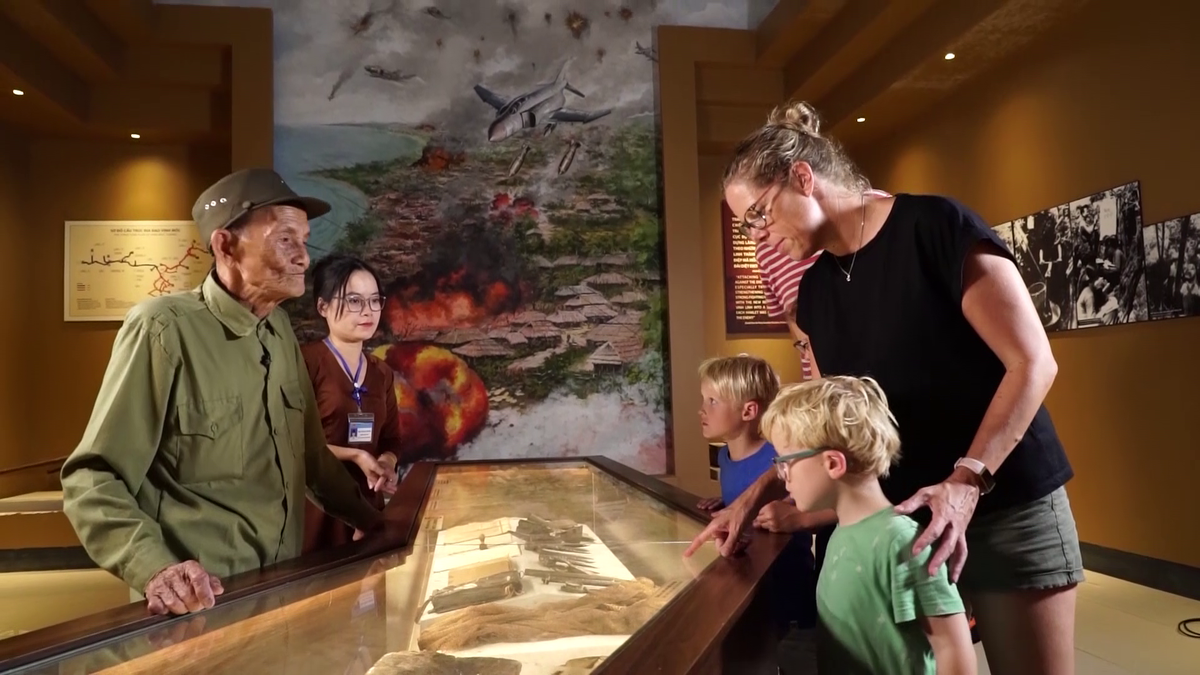
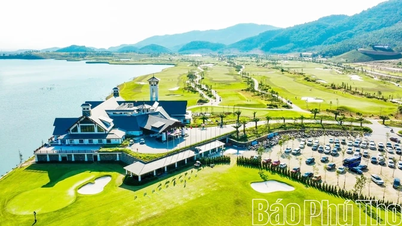

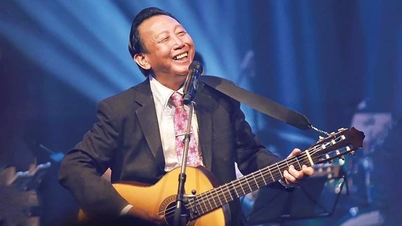

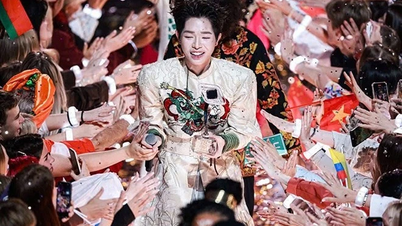

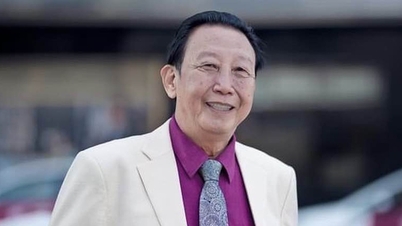

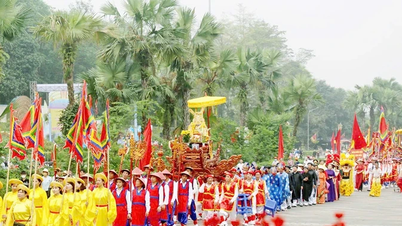




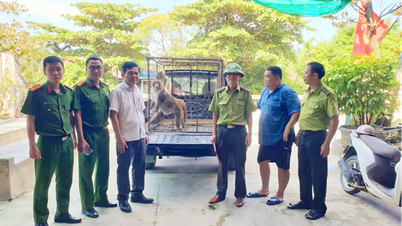
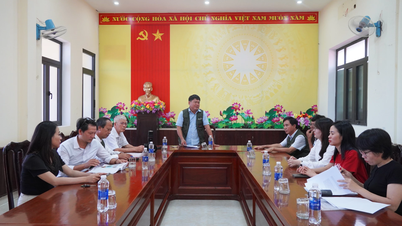
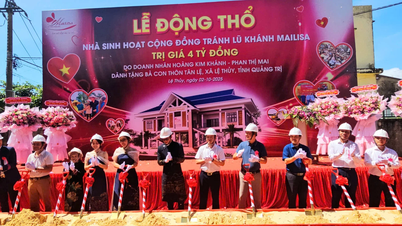
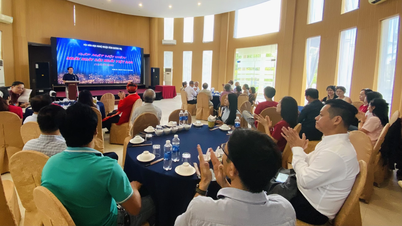





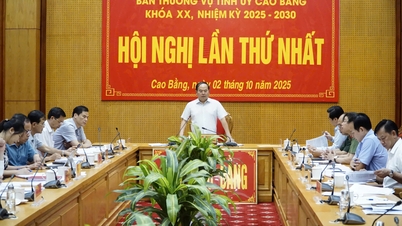


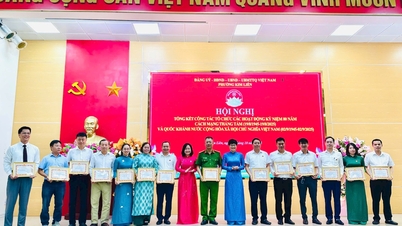
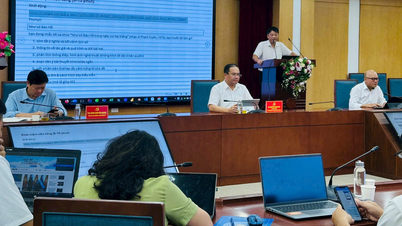
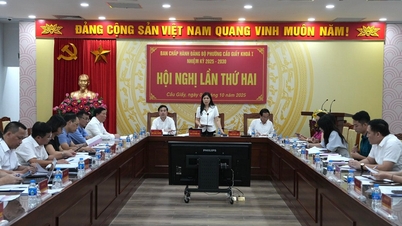






























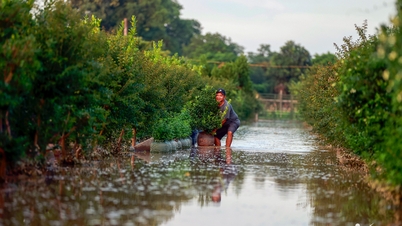
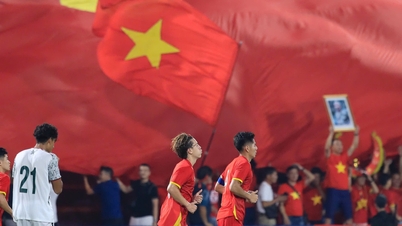




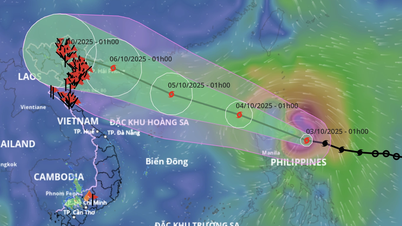

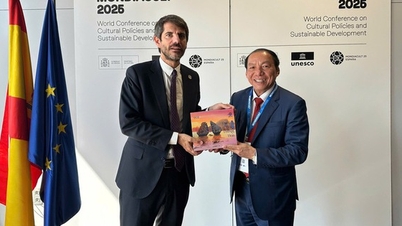
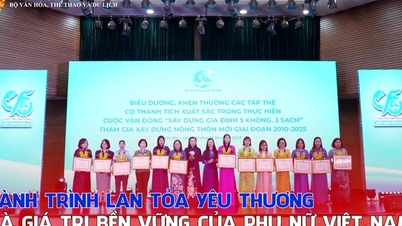



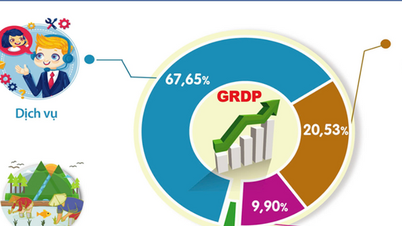


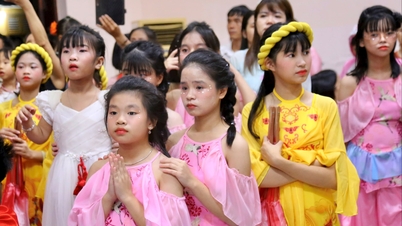


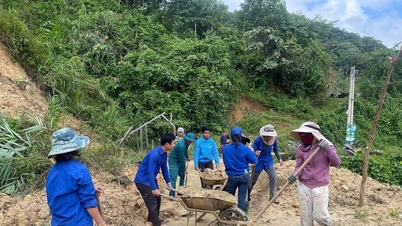
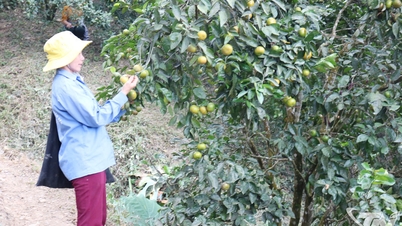














Comment (0)